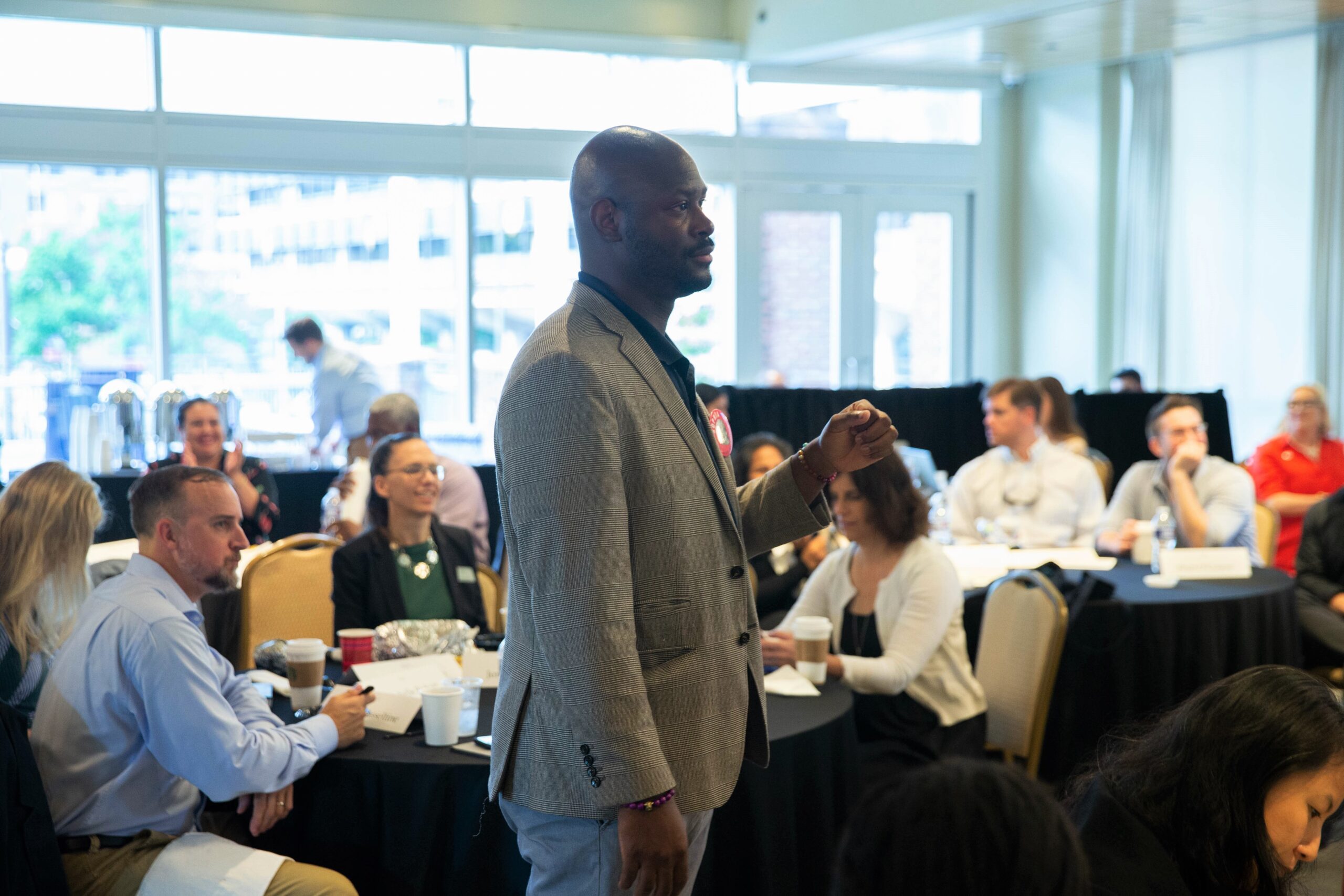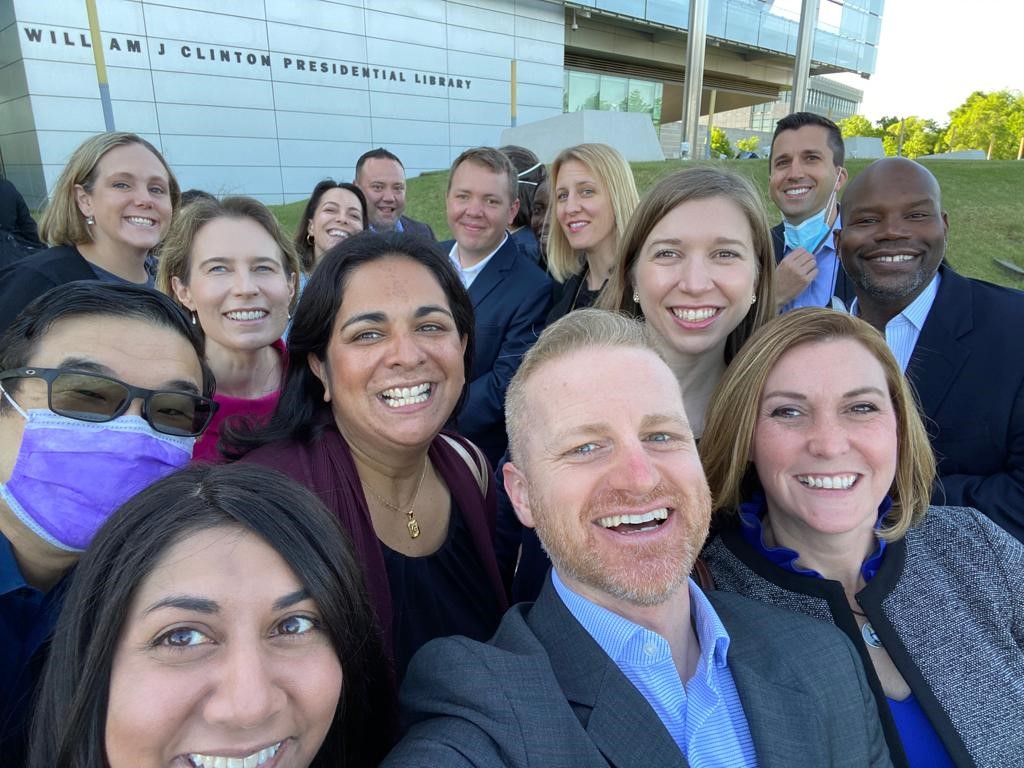Please tell us a little bit about yourself and your personal leadership project (PLP).
I serve as Education Counsel at the NAACP Legal Defense Fund, the Nation’s oldest civil rights organization, founded by Thurgood Marshall in 1940 to litigate Brown v. Board of Education. I am a native of Pascagoula, Mississippi; a proud 18-year-and-counting New Orleanian; and a husband and father of two amazing daughters. My PLP was to draft legislation requiring mental health education in Louisiana’s public schools and to advocate for the proposed legislation to become law.
Please give us an update on what you have been working on since completing the Presidential Leadership Scholar Program.
Since completing PLS, I still litigate ongoing school desegregation cases in the Deep South. (Yes, we still have school districts that are under federal desegregation orders!) I also, through PLS, have learned that I have knack for writing legislation for children. I recently wrote a bill in Louisiana that requires all jails and prisons to permit parents who are incarcerated to virtually attend their children’s awards and graduation ceremonies, at the request of the children. A few weeks ago, that bill became a law with zero opposition. So, I am thankful to PLS for helping me to discover this “superpower” of mine as a children’s rights public policy advocate.
What is Louisiana Act 960? What has driven your involvement in this legislation?
Louisiana Act 960 is a law that was enacted during the 2022 legislative session that requires all Louisiana public schools, from grades kindergarten through 12th, to provide mental health education to students. I wrote the bill that later became Act 960 after noticing through my work as a children’s rights attorney that children had a limited to nonexistent understanding of what mental health is and why it is equally as important as physical health. Additionally, I wrote the bill in light of the preliminary research on the adverse impact of the COVID-19 pandemic on the mental health of children and adolescents. I was also inspired to write Act 960 based on my own traumatic childhood experiences and wishing in hindsight that I had an understanding of what mental health was in order to better navigate those experiences.
Which lessons learned during the Presidential Leadership Scholars Program have stayed with you the most, and how have you put those lessons into action, whether in your work with Louisiana Act 960 or elsewhere?
The biggest lesson I’ve learned through PLS is how to identify, message, and advance causes that are rooted in civil rights – such as access to mental health care and education equity – in a manner that will garner bipartisan support. One module that particularly comes to mind is the one in which we had to identify all stakeholders who would potentially support or oppose our PLP, determine which groups would be receptive to speaking with me about my proposed legislation, and develop a message for each one on why the legislation was needed for, in my case, children in Louisiana. I used that very list and the feedback on messaging that I received from my PLS colleagues to reach out to representatives, both Republican and Democrat, from the Louisiana Legislature, to ultimately have the bill become a bipartisan, co-sponsored effort that received ZERO opposition in the state’s House and Senate.
How can we all work to move the needle on mental health education and support?
By normalizing public discourse on mental health, even at the earliest levels of learning. That is why I wrote Act 960 – with the hope that children will take the concepts they learn in school about mental health, not only to educate and empower themselves, but to share with their parents and communities. My heart swelled with immense joy when my 8 year old came home and told me that her health teacher spoke to the class about the importance of “brain health” and expressing your feelings! I proudly told her that her Daddy is the reason why she and other children in Louisiana are having conversations about mental health in their schools.

